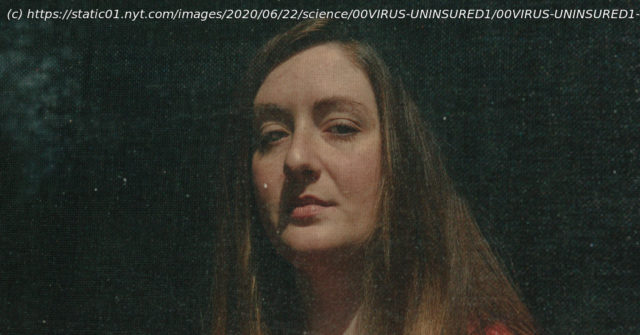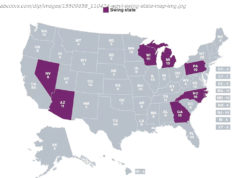The battles over the health law have played out during a decade of continuous economic growth. How it performs as a safety net now may help determine its future.
The Affordable Care Act, the landmark health law that has been a subject of caustic debate for more than a decade, is being tested as never before, as millions of Americans lose their jobs and medical coverage in the midst of the nation’s gravest health crisis in a century.
The law is offering a vast majority of newly unemployed people a path to stopgap health coverage, providing a cushion that did not exist during the last crushing recession — or ever before. But the crisis has also highlighted fundamental weaknesses with its patchwork system — ones magnified by Republican efforts to undermine and dismantle it, but also seized on by some Democrats pushing for a sweeping overhaul.
On Thursday, as the coronavirus pandemic surged and the country reported a daily record in new virus cases, the Trump administration continued the Republican Party’s push to abolish the law. Shortly before midnight, the Justice Department filed a brief asking the Supreme Court to overturn the law, in a case brought by a group of Republican attorneys general.
The case is likely to be argued this fall during the closing stages of a bitter presidential election in which health care is certain to be a galvanizing issue. Joseph R. Biden Jr., the presumptive Democratic nominee, continues to support improving and expanding the A. C. A. with an option to buy a public plan, rather than replacing it with a “Medicare for all” system preferred by many in the left wing of the party.
As those political and legal battles play out, how the law actually works in the coming months of intense need could go a long way toward determining its durability and future.
“This is the first test of the A. C. A. in an economic downturn,” said Peter V. Lee, the executive director of Covered California, the state’s insurance marketplace created under the law. “But it’s not just a test — it’s a national study of what happens in states that implemented the A. C. A. as opposed to those that didn’t.”
Four out of every five people who have lost employer-provided health insurance during the coronavirus pandemic are eligible for free coverage through expanded Medicaid programs or government-subsidized private insurance, according to the Kaiser Family Foundation, a nonpartisan health research group. And many jobless 20-somethings have been able to join their parents’ plans. All three options were made possible by the law.
Yet others have fallen through the holes in the law’s safety net. Nearly three million low-income people are ineligible for assistance in the 14 states that have declined to expand Medicaid under the law, including Texas, Florida and others, mostly in the South, where coronavirus cases are now spiking. Many people who have qualified for government subsidies to buy private plans still face unaffordable co-pays and deductibles.
David Exum, of Kannapolis, N. C., has experienced both the benefits and the shortcomings of the law. He lost his health coverage when he was laid off from his job as a web content coordinator in March. He is now paying just $1 a month for a subsidized plan.
It is a big improvement from the last recession, he said, when he became uninsured for several years after losing his job and getting divorced. But for Mr. Exum,53, the law is imperfect.
His plan is cheap because it has a high deductible — $6,900 a year. Worse, if his unemployment benefits expire before he finds a new job, and his income drops below the poverty line, he will lose his premium subsidies and will no longer be able to afford the plan. But because of a quirk in the law, he would not be eligible for Medicaid in that situation, because North Carolina has not expanded the program to cover many low-income men.






